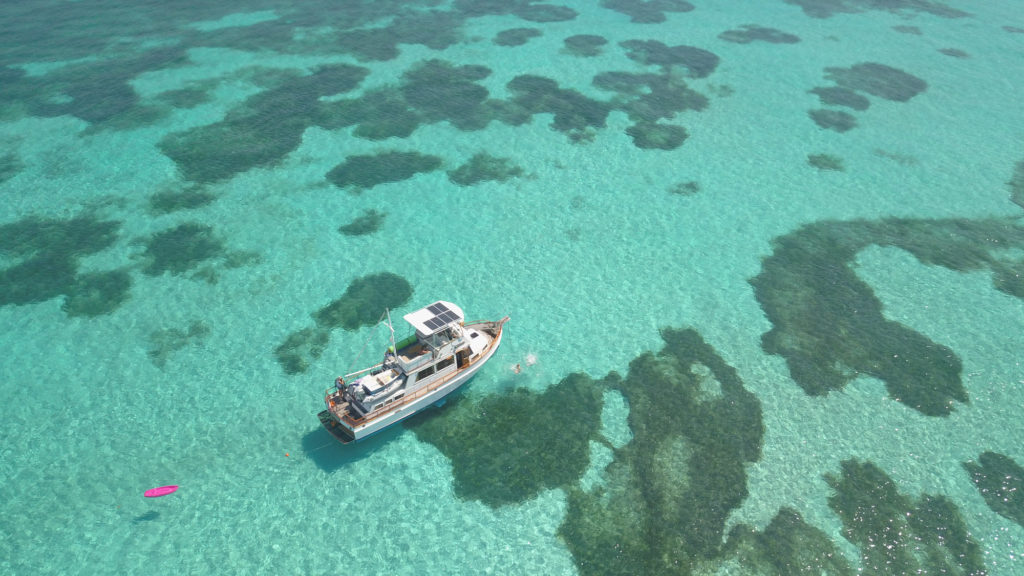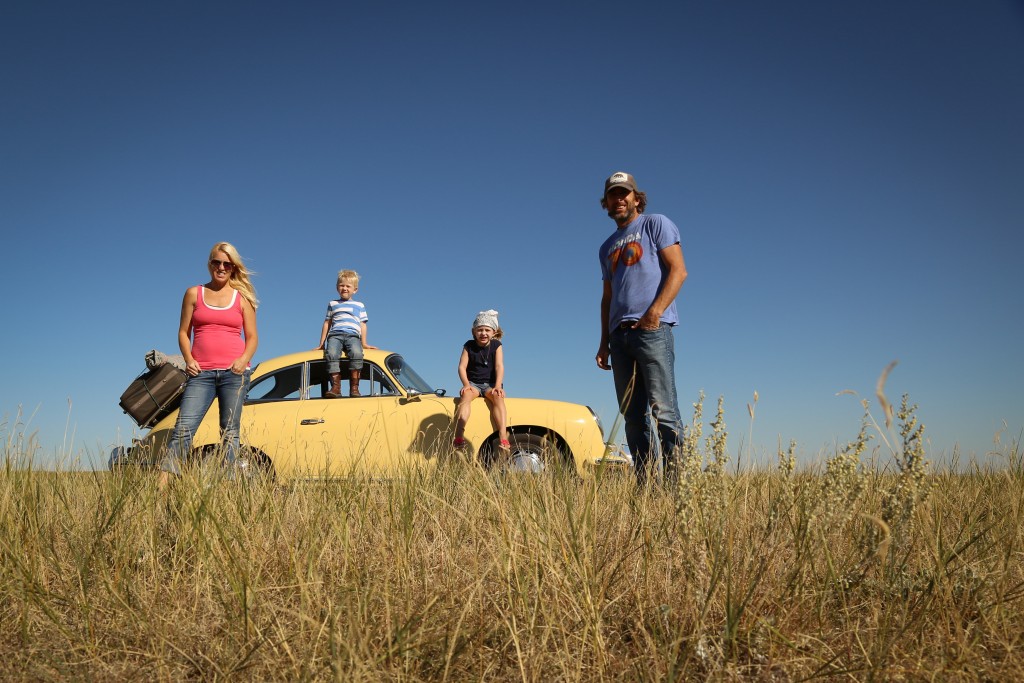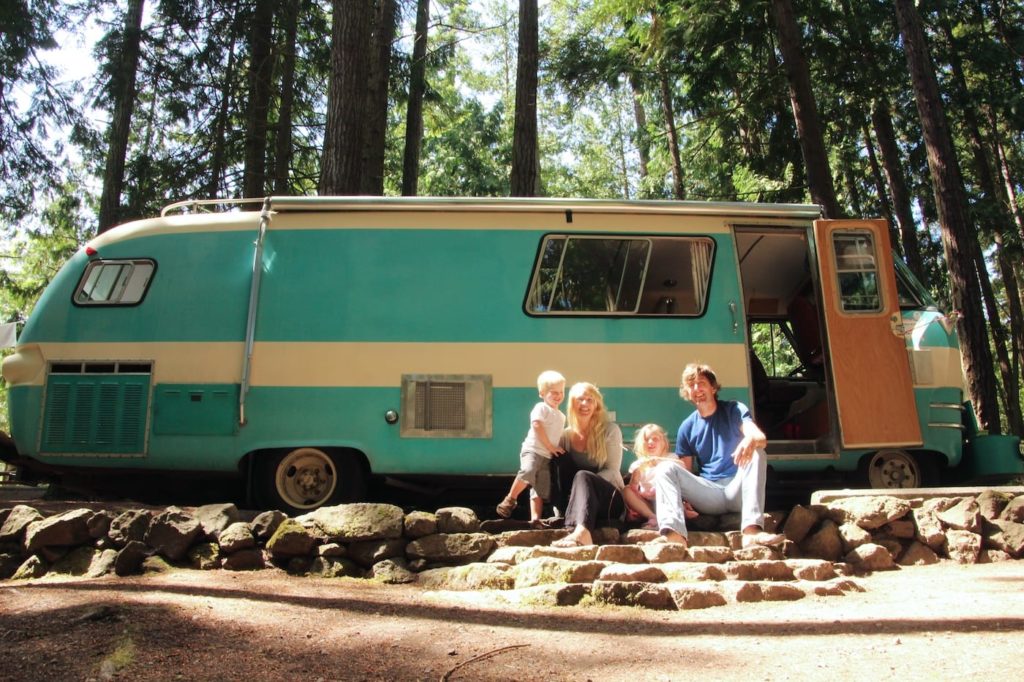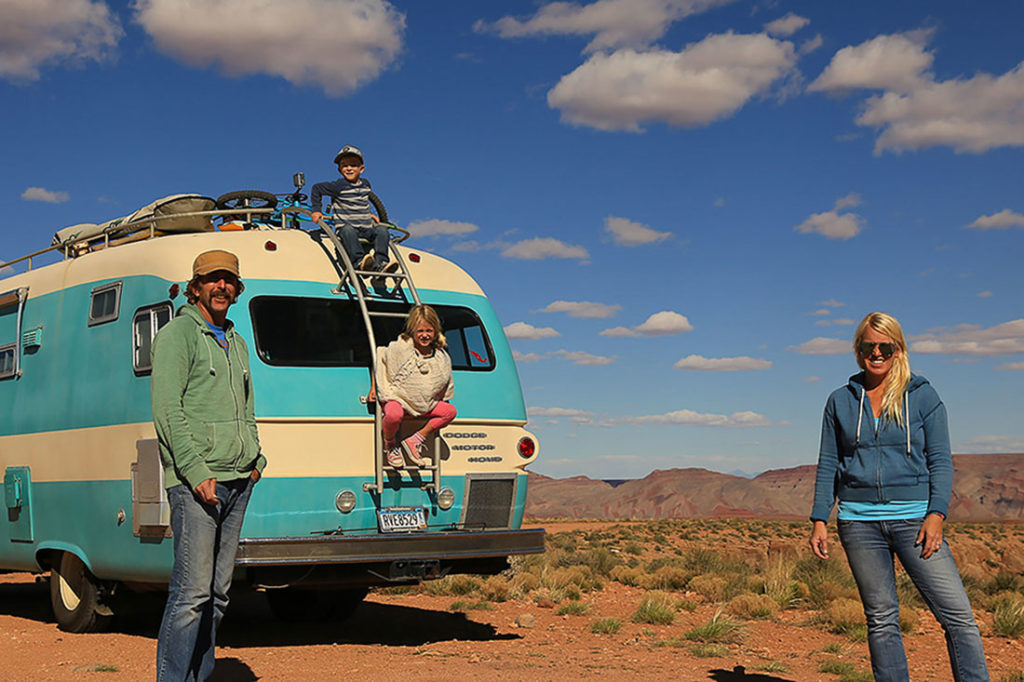As the Schultes drove in their motor home across the U.S. in 2016, Ali and Patrick told their children they’d be meeting friends once they got to the campground. Ali remembers her daughter Ouest looking up and asking, “How do we have friends everywhere we go?”
The only life Ouest had ever known was on the road or in the water. The friends her mom spoke of were part of a community the Schultes had built over the course of nearly two decades of traveling.
It was 2003 when Ali and Patrick first started their adventure. They were in their late 20s, living in Chicago. The original plan was never to be gone permanently; it was simply to sail around the world. Patrick, who was a commodities trader, cashed out his trading accounts. Ali left her job as an administrative assistant. They sold their West Loop apartment and most of their belongings.
“I had done pretty well in my business as a trader, so when we left, we had enough money to comfortably sustain that lifestyle for the four years that we expected to take to sail around the world,” Patrick says.
With a new boat in their possession, a day of sailing lessons under their belt, and countless warnings from their concerned community, they sailed off to the Bahamas. Not only did the inexperienced sailors survive, but two years into their oceanic adventures, the Schultes realized they didn’t want to stop exploring.

“There had been a fundamental shift, and I can’t put my finger on when or where it happened, but it came about without any discussion between the two of us—we just knew,” Patrick says.
Although their first few years started out on the water, they eventually moved to land-based traveling and then back to the water. And then back to land again. And so on and so forth. Between that first thrilling time they successfully circumnavigated the world and the surreal moments of exploring shipwrecks with their scuba-certified children, they’ve created a life around the experiences they want.
“Every year that passes cements further our unwillingness to settle—not only to settle down, but to settle for, or do, anything less than what we want to do with our lives. Lives that are far too short,” Patrick says.
The term “digital nomad” refers to those who work remotely while traveling. In the Schultes’ case, Patrick’s trading skills proved essential to their long-term travels.
With the increase of remote work opportunities and demand for digital workforces, long-term traveling has become easier than ever. But how does one go about planning for such a move and making it successful? Now rounding out the end of their second decade on the road, Patrick and Ali have a few suggestions for those who want to try it out.
1. Just Take the Plunge
Although it’s recommended that you start out with a little more than one day of sailing practice when tackling a circumnavigation trip around the world, Ali says she is glad that there weren’t as many resources when she first started.
“In today’s world, I would over-research and have anxiety planning such a mammoth undertaking for the first time,” she says. “Back in 2003, there weren’t all the sailing blogs and YouTube channels showing what we were in for. We read a few books about ocean crossings and provisioning the boats. So, truthfully, I didn’t really have any worries about moving onto a catamaran and sailing off.”
Getting caught in the nitty-gritty can cause you to lose the courage and momentum it often takes to make such a big move. “Go all in and have fun,” Ali says.

2. Let Go of Old Routines and Ideas
Patrick says one of the main differences between those who do and don’t make the lifestyle work long term is the way they handle routine.
“We noticed that [those who couldn’t make it work] tried to just recreate the typical school day, but now, they’re doing it on a boat. They changed their entire life, but they tried to keep their schooling thing exactly the same,” Patrick explains. “Try to view it as a new opportunity. It’s a way to change things up for kids and make learning more interesting and more fun.”
Ali agrees, pointing out that their lifestyle on a boat is very different from a typical home lifestyle. Those trying to push it into a neat box can become frustrated or disappointed as they face reality. However, the Schultes haven’t sacrificed everything from their former life. Ali says, in the initial days on the boat, she had to slowly wean herself off watching Survivor on Wednesday evenings. They even brought a small portable TV onboard. In the years since, one of their first moves when buying a boat is removing the TV.

3. Downsize and Simplify
If you’re not ready to make the jump but want to begin preparing for an eventual move to long-term traveling, Patrick suggests starting small by downsizing.
“Most people don’t just snap their fingers and take off,” he says. “Try and start living that simpler life. Maybe you’re in a 5,000-square-foot house right now with two kids. If your plan is, five years from now you’re gonna go live on a boat—which is gonna be way smaller—why not downsize now? Start the process. Start living simpler, and start living the way that you anticipate living.”
4. Take Home Wherever You Go
The Schultes always had a place to live, whether it was in a boat or on land. It’s not easy to be in a constant state of travel, and burnout is common.
“I think part of the reason we’ve avoided burnout is that we have our home with us,” Patrick says. “We do it a little differently. We’re not just going off and landing in Thailand saying, ‘Oh, let’s find a place to rent.’… Our boat is our home or our motor home is our home. And so we always have that comforting space.”

5. Be Willing to Start Over—and Over
Patrick also attributes the longevity of their travels to the relative freedom to change things up as they see fit. Every few years, they move from one mode of accommodation and transportation to another.
“We have about a four-year time span where we’re really gung-ho and enjoying what we’re doing. And then we want to switch it up, because things can get a little stale,” he says. “We’ve done this multiple times. We’re actually looking at our fourth boat right now, and we’ve done the VW bus and motor homes and Volkswagon trailers.”
It also helps to have a more casual attitude about the lifestyle. Patrick points out that if the remote lifestyle doesn’t suit you, you can always settle down somewhere.
“Nothing has to be forever.” he says. “You can try these things! Go live on a boat. If it’s not right for you a year later, it might have cost you a little bit of money, but life will go on, and you’ll have that experience and those stories and memories. Life can be constantly switched up, and there are all sorts of different things you can do.”

6. Involve the Kids
Although some families can’t fathom traveling with their children, Patrick and Ali have never known parenthood not on the move. Since having kids, Patrick says that, though the pace has slowed down, not much else has changed. When making decisions about where to go or what to do next, the whole family gets to decide.
“We’re a family, right? We try to make sure that [the kids] have their say as well, and we don’t want to force them into living only our life,” he says. As their children, who are 12 and 10, grow up, Ali says that she hopes they look back and see how fully invested their parents were in their upbringing.
“[I hope they see] both parents, working together to make an amazing, low-stress, adventurous life together. That they will see that they can do and be what they have passion for; be true to who they are. That they see others in a positive way, with curiosity and empathy. That they live life to the absolute fullest.”
The Schultes are now off to their next adventure, sailing around the world again. Will they ever settle down? “We think we’ll settle down someday,” says Patrick. “But we thought that a while ago, too, and that still hasn’t happened.”
This article originally appeared in the September/October 2022 issue of SUCCESS magazine. Photos courtesy of the Schulte family











